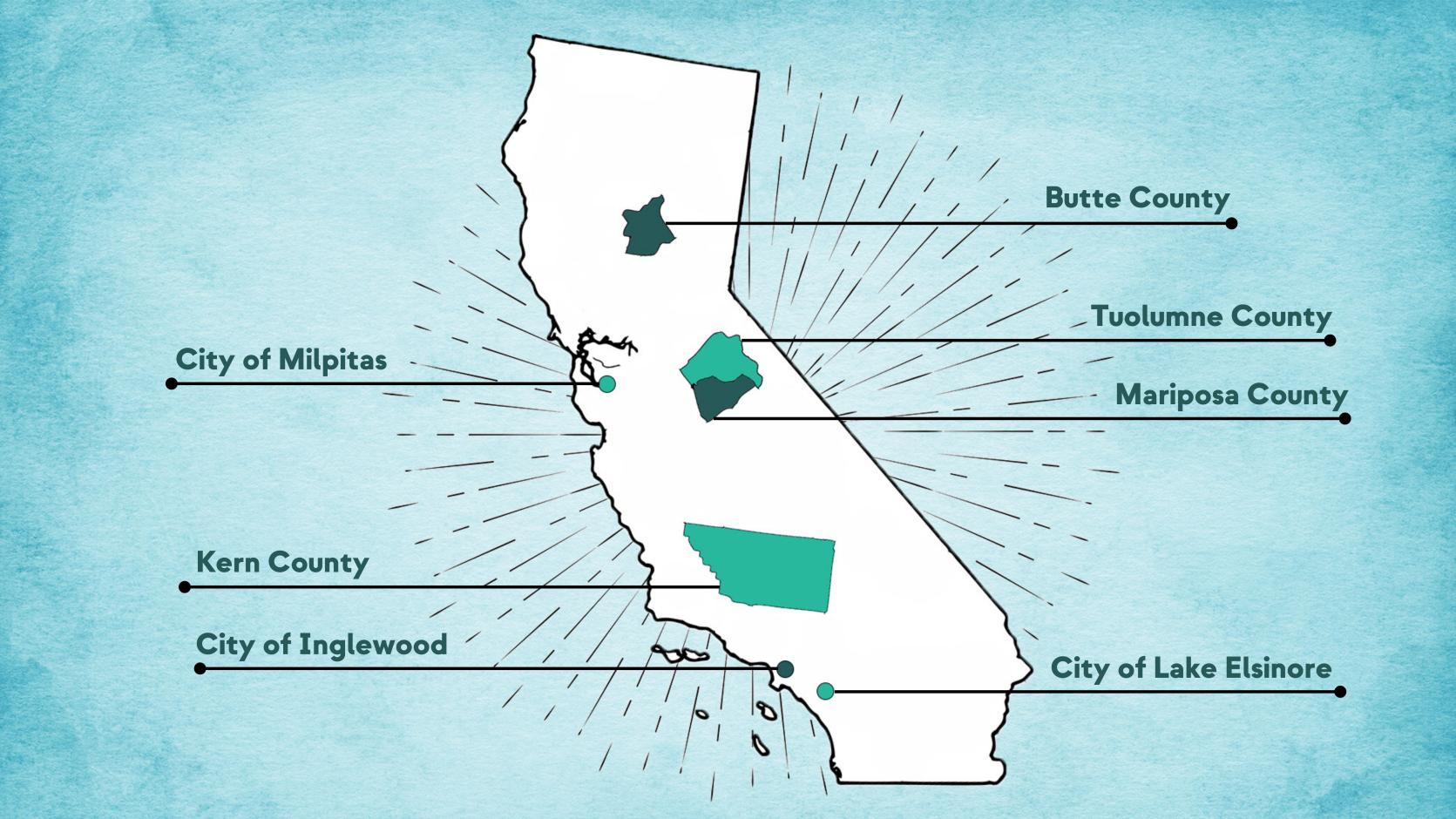Seven Staff Members from Local Governments Across California Take Part in Brand-new Stanford Fellowship
Stanford Impact Labs welcomes the inaugural cohort of Evidence for Policy Fellows

I am thrilled to announce the inaugural cohort of Stanford Impact Labs (SIL) Evidence for Policy Fellows. The Evidence for Policy Fellowship is a one-year program developed to support the professional development and policy goals of career staff on teams in local governments in California as they seek to bring data, evidence, and research to bear in the design and implementation of a policy priority. These seven staff members from local governments across California are working to address economic opportunity and social mobility in their communities:
- Alex Andrade, City of Milpitas: understanding the impact of a new rental assistance program for low-income households whereby 50 households will receive $645 per month for a total of 24 months. Data collection and analysis during this project will contribute to staff recommendations about program implementation, and future programs and policies focused on housing security.
- Adam Gufarotti, City of Lake Elsinore: understanding the impact and relative effectiveness of current homelessness services in the city. Combining that understanding with an analysis of best practice for homelessness services will allow staff to recommend future approaches to homelessness reduction in the City of Lake Elsinore.
- Ben Goger, Mariposa County: developing a strategy to direct seed funds into a community housing trust fund. This project will involve analysis of best practice of housing trust fund models and community feedback, allowing staff to elevate recommendations that support sustainable community housing policies and programs in Mariposa County.
- Brigiett Guzman, Kern County: building systems and structures to understand the Kern County entrepreneurship landscape, particularly with respect to business type, location, and owner demographics. Staff will use these systems to understand the impact of past programs and policies, and make recommendations about ways to stimulate further business growth.
- Katie Simmons, Butte County: building a disaster recovery model that measures community indicators such as housing and employment to track progress. Staff will use this model to understand recovery after a disaster, and to help shape their recommendations for the development, delivery, and adaptation of recovery programs and policies over time.
- Qiuana Williams, City of Inglewood: building a strategy to support small businesses’ ability to capitalize on foot traffic from major events. Staff will use data collected during this project to inform small business owners about market opportunities, and make recommendations about programs and policies to serve the Inglewood small business community.
- Robbie Bergstrom, Tuolumne County: developing recommendations for community-involved town center rejuvenation. The combination of community input and economic data will allow staff to propose a strategy to stakeholders for development across Tuolumne County.
Over the next twelve months, fellows will test approaches to affordable housing (through rental assistance programs and the development of a community housing trust), strategies for homelessness services, support for entrepreneurs and small businesses, town center development, and the conceptualization of a model for sustainable disaster recovery.
Fellows were selected through an open application process, in which a selection committee reviewed applications and interviewed finalists. The Stanford Impact Labs team was overwhelmed by the quality of applications we received, and is grateful to everyone who took the time to apply. We are convinced of the need for this kind of program, and we look forward to testing the choices we made as we designed the fellowship.
I’m also pleased to announce that Amanda Graor and Michelle Skoor will join the Evidence for Policy team to co-facilitate workshops, lead virtual trainings, and provide support and technical assistance to fellows over the coming year.
Amanda has spent over 15 years using data and evidence to drive decision making at the regional metropolitan planning organization and council of governments for the bi-state Kansas City metro area working in transportation, environment, innovation and organizational strategy. Michelle has spent over a decade in the technology industry, partnering with governments in California on workforce development and apprenticeships, and has deep expertise in collaborating to design the systems and structures required to make decisions using data and evidence.
The team at Stanford Impact Labs is excited to draw on Amanda’s and Michelle’s expertise as we support the fellowship cohort.
In the process of launching this program and reviewing applications, our team learned that local governments are looking to use data and evidence for economic opportunity in multiple ways:
- Some fellows are keen to provide broader context about a specific issue in their communities, in order to shape discussions around upcoming program and policy decisions
- Some fellows are ready to scope future projects using data and evidence
- Some communities are seeking to evaluate the effectiveness of existing programs, services, or policies to determine how and whether to continue them
- Some communities are collecting large amounts of data, but need support in systematically synthesizing that information into something actionable
All fellows in the cohort expressed a need for (1) improved approaches and practices to use data and evidence in their day-to-day work, and (2) a learning culture and mindset within their organization. All fellows also plan to collaborate both across their municipality and with external partners to shape their projects.
The SIL team is delighted to welcome the cohort and teaching team to Stanford for a kickoff workshop to dig into research questions and project approaches and begin an exciting year of learning from one another.
